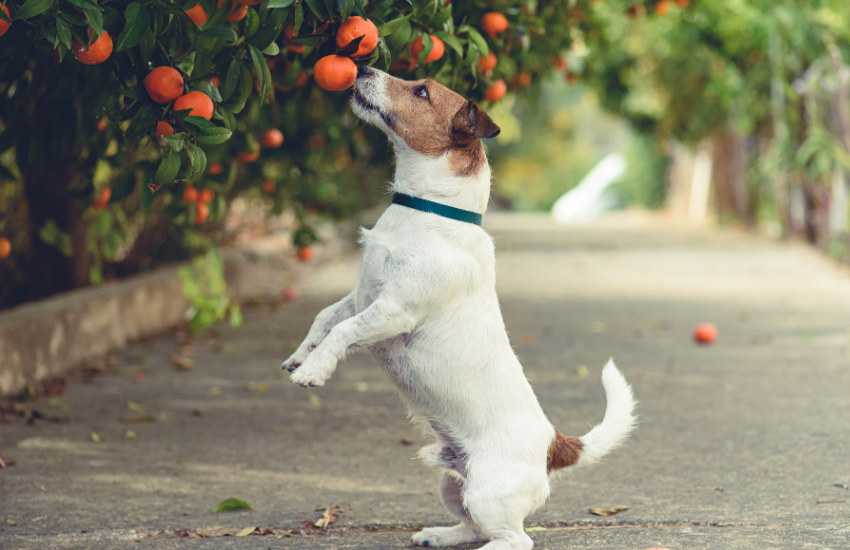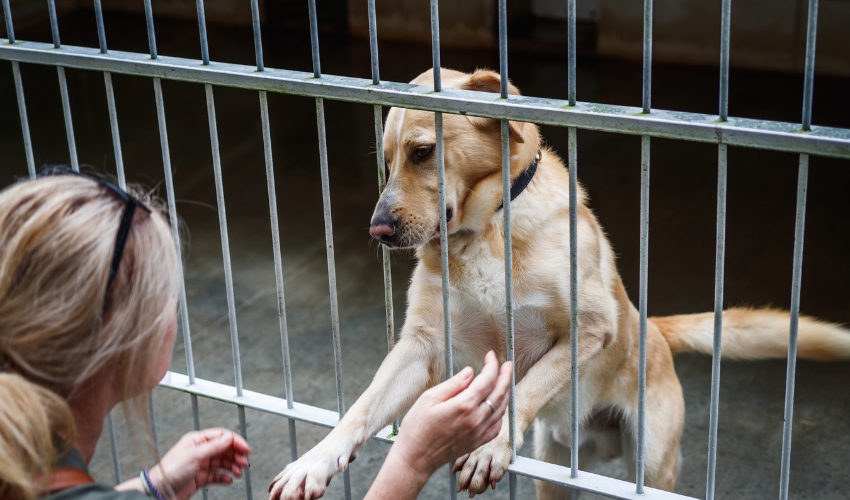As pet owners, one of our primary responsibilities is ensuring our furry companions receive a nutritious and safe diet. While many fruits offer health benefits, it’s essential to be aware of the ones that can pose potential risks to our dogs. While many people’s food is perfectly safe for dogs, some are very unhealthy and dangerous, so it’s critical to learn what fruits can dogs not eat.
In this comprehensive guide, we’ll explore the fruits dogs should avoid, shedding light on the potential dangers and offering insights into their potential risks.
Is fruit good for dogs?
While dogs are primarily classified as omnivores, they have a unique dietary requirement that includes a balanced diet. Fortunately, modern dog food formulations are designed to provide all the essential nutrients for optimal health. That being said, fruit is a great treat to offer your dog.
Introducing fruits to your dog
Before introducing fruits to your dog, as said earlier, dogs may have specific dietary requirements or health conditions to consider.
Here are some quick and easy tips to keep in mind:
#1 Start slowly
Introduce fruits in small quantities to assess your dog’s tolerance and prevent digestive upset.
#2 Prepare the fruit properly
Wash fruits thoroughly to remove pesticides or dirt. Remove seeds, cores, and any inedible parts before feeding them to your dog.
#3 Monitor for allergic reactions
Dogs can have allergies to certain foods like humans. Introduce new fruits one at a time and watch for any signs of allergies, such as itching, vomiting, or diarrhea.
If any adverse reactions occur, discontinue feeding that fruit and consult your veterinarian.
What fruits can dogs not eat?
Grapes and Raisins: A toxic duo
Grapes and raisins are known to be highly toxic to dogs, even in small quantities. Consumption can lead to severe kidney damage, resulting in symptoms such as vomiting, lethargy, and abdominal pain.
It’s essential to keep all grape products, including raisins and grape-flavored snacks, out of reach.
Citrus fruits: A mixed bag
While small amounts of citrus fruits like oranges are generally safe for dogs, the high acidity can lead to stomach upset. Additionally, the essential oils present in citrus fruits can be toxic.
Large quantities of citrus fruits, especially lemons and limes, can cause digestive issues and, in some cases, more severe reactions.
Avocado: A tricky treat
Avocado contains a substance called persin, which, while generally harmless to humans, can be toxic to dogs in large quantities. The pit also poses a choking hazard.
While small amounts of ripe avocado flesh may not cause harm, it’s advisable to err on the side of caution and avoid feeding avocados to dogs.
Peaches and plums: Beware of pits
The flesh of peaches and plums is not inherently harmful to dogs, but the pits pose a significant risk. The hard pits can cause choking or intestinal blockages if ingested.
Additionally, the pits contain cyanide, which can be toxic. Always remove the pits and offer the fruit in small, manageable pieces.
Cherries: Pit perils
Similar to peaches and plums, cherries come with pits that can pose a choking hazard. The pits also contain cyanide, making them toxic when ingested.
Remove the pits and stems before offering cherries, and consider opting for safer fruit alternatives.
Apples and pears: The core concern
While apples and pears are generally safe for dogs, the seeds and cores contain cyanide. Ingesting these parts can lead to toxicity. Remove the seeds and cores, and offer the fruit in bite-sized pieces.
Additionally, be cautious with apple and pear products, such as jams or juices, as they may contain added sugars or substances that can be harmful.
Coconut: Not always a tropical delight
While coconut flesh, in moderation, is safe for dogs and even provides nutritional benefits, caution is needed when it comes to coconut water. High potassium can lead to electrolyte imbalances if consumed in excess.
The hairy outer shell can also pose a choking hazard and should be avoided.
Tomatoes: The red zone
Tomatoes, while technically a fruit, contain solanine and tomatine, which can harm dogs. The highest concentration of these substances is found in the stems and leaves.
While ripe tomatoes in small amounts may not be toxic, removing all stems and leaves before offering them to dogs is advisable.
Persimmons: A cautionary tale
Persimmons are rich in fiber and nutrients but contain seeds that can cause intestinal blockages. The seeds also release cyanide when ingested, making them potentially toxic.
Remove the seeds and offer persimmons in moderation, paying close attention to any signs of digestive issues.
Fruit pits in general: A hazardous commonality
While specific fruits like peaches, plums, and cherries have mentioned dangerous pits, it’s essential to generalize the caution to all fruit pits.
The hard seeds can lead to choking or intestinal blockages, Whether from apricots, nectarines, or other pitted fruit.
Navigating Safe Choices with Doobert
While fruits can be a healthy and tasty treat for dogs, they must be mindful of the fruits they should not eat. Understanding the potential risks of certain fruits is essential for keeping our dog companions safe and healthy.
As guardians of good health, we at Doobert recognize that responsible pet ownership involves more than just offering treats. It’s about being attuned to canine nutrition, understanding their digestive systems, and making choices that contribute to a life of vitality and happiness.
The wealth of information provided by Doobert serves as a compass, guiding us away from potential hazards and toward a landscape of safe and nutritious alternatives. By steering clear of toxic fruits, removing harmful components, and practicing moderation, we protect our dogs from health risks and strengthen the bond we share with them.
Let us be mindful of the choices we make. Learn more about pet resources and connect with other animal lovers. Become a Dooberteer today or shop in the Doobert Store–5% of your purchase goes to the animal organization of your choice!












